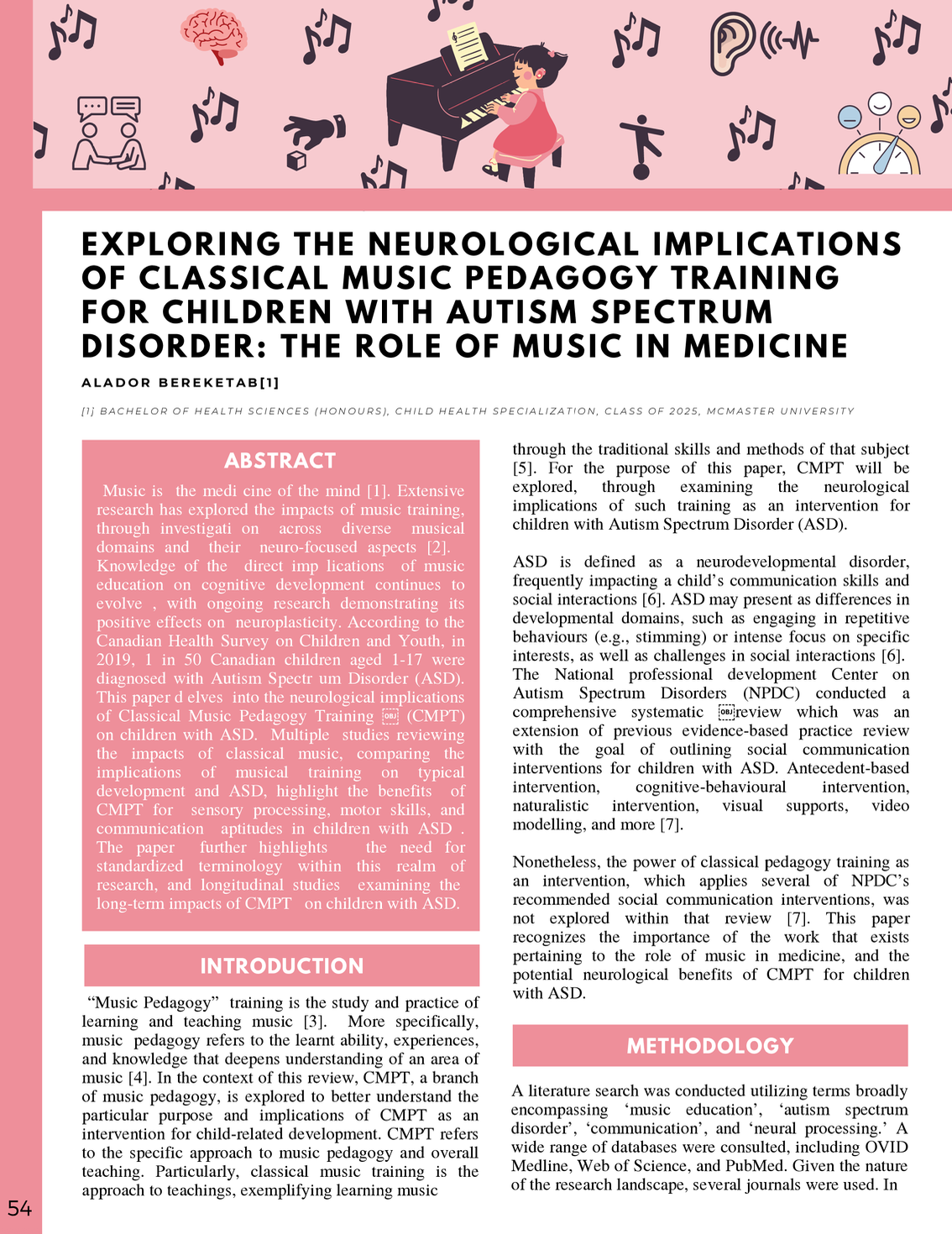Exploring the Neurological implications of Classical Music Pedagogy Training for Children with Autism Spectrum Disorder: The Role of Music in Medicine
DOI:
https://doi.org/10.15173/child.v3i1.3906Abstract
Music is the medi cine of the mind [1]. Extensive research has explored the impacts of music training, through investigati on across diverse musical domains and their neuro-focused aspects [2]. Knowledge of the direct imp lications of music education on cognitive development continues to evolve , with ongoing research demonstrating its positive effects onneuroplasticity. According to the Canadian Health Survey on Children and Youth, in 2019, 1 in 50 Canadian children aged 1-17 were diagnosed with Autism Spectr um Disorder (ASD). This paper d elves into the neurological implications of Classical Music Pedagogy Training  (CMPT) on children with ASD. Multiple studies reviewing the impacts of classical music, comparing the implications of musical training on typical development and ASD, highlight the benefits of CMPT for sensory processing, motor skills, and communication aptitudes in children with ASD . The paper further highlights the need for standardized terminology within this realm of research, and longitudinal studies examining the long-term impacts of CMPT on children with ASD.

